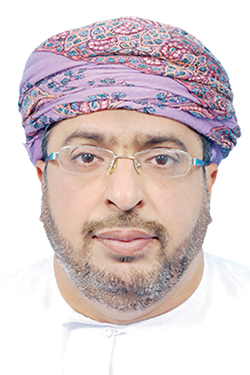

Within the past six months, the International Monetary Fund (IMF) issued two warnings to GCC states. The first relates to the need to focus on supporting economic diversification, while the second warns of the financial drought that could afflict GCC states within the next 15 years due to declining oil prices.
Last April 2019, the IMF reiterated its call to GCC states to focus on supporting economic diversification and enhancing savings programmes with revenues from oil, with the need to reduce public sector wages and cut or limit subsidies to energy fields in order to fulfill commitments towards social and productive sectors.
The advisories also called for development of non-oil area that are currently weak, and stressed the need for GCC states to implement gradual financial reforms whenever oil revenues increase.
The IMF stated in its report that reducing the occasional waste in spending by official institutions will create opportunities for public investment in human development and also provide adequate protection for most of the vulnerable income groups. It will also enhance programmes and revenues for institutions and assets owned by countries, which has become a necessity at this time when the world is experiencing numerous economic changes.
The more recent warning about the financial resources of GCC states is not that different. However, it carries a new message that can be sometimes described as unrealistic, having being slammed by politicians, economists and the GCC public. The new warning is related to the financial resources of GCC states that are expected to dry up during the next 15 years.
Experts agree that the financial wealth owned by GCC states must be preserved, which is completely understandable.
However, the projected timeframe of the financial drought is farfetched, although there is some truth to the warning that the region has not yet been able to increase its financial revenue from non-oil sources.
To this day, GCC states rely heavily on oil revenues, which constitute between 70 – 90 per cent of public revenues, while non-oil resources contribute 10 – 30 per cent. In addition, the annual demographic growth in GCC states is greater today than economic growth, leading to increased financial obligations for governments on an annual basis in terms of providing more educational, health and social institutions and manpower to manage these institutions.
According to published data, the six GCC states have allocated huge revenues from oil during the last a few decades, amounting to $2.5 trillion of financial assets that were invested abroad through sovereign wealth funds.
Nevertheless, the lack of comprehensive economic diversification and annual withdrawals from sovereign funds affect the remaining financial allocations.
The deficit in the annual financial budgets of GCC states led to a drop in net financial wealth during the years 2014-2018, by nearly $300-400 billion, to $2 trillion, according to IMF estimates. This drove GCC states to withdraw from sovereign funds, borrow from international banks, issue bonds and privatise some projects to obtain funds to fulfill civil and military obligations.
Meanwhile, economic growth declined to almost 0.5 per cent, compared to over 4 per cent in the past few years. This creates many financial challenges for GCC states, in present and future, while oil prices remain unstable, which turns them into debtor countries.
Today, GCC states need to accelerate efforts in economic and financial reforms, increase the capacity of economic diversification projects, further reduce public expenditures and seek financial systems untainted with administrative and financial corruption.
This is in addition to facilitating procedures and avoid bureaucracy in daily transactions in government agencies to enable young people to enter entrepreneurial ventures, creating employment opportunities in government and private institutions and focusing on national competencies to set up institutions that enhance global competitiveness.
haiderdawood@hotmail.com
Oman Observer is now on the WhatsApp channel. Click here



